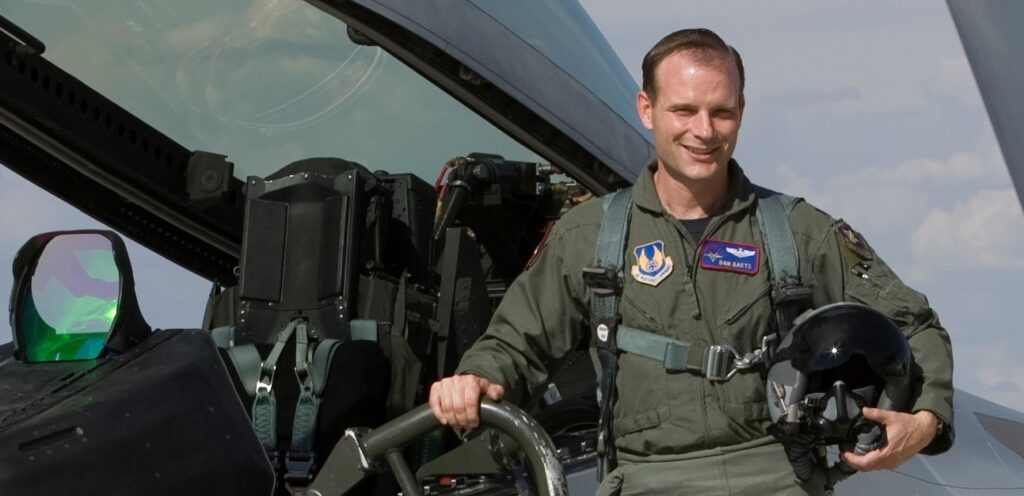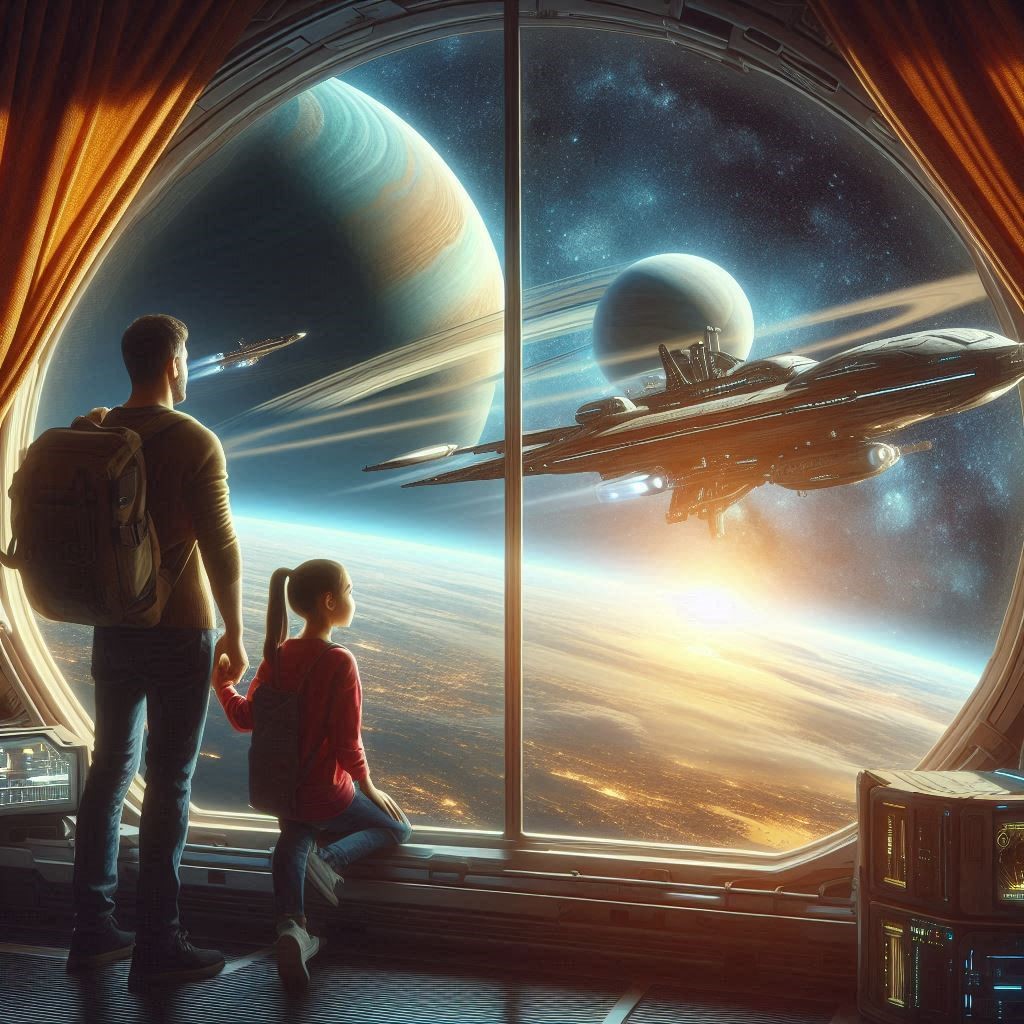There’s a principle of leadership (and life) that our WHY is more important than our WHAT. What I do as an author is write clean sci-fi. But WHY do I do it?
It’s a deep question. So I’ll start shallow…
I love buttons and switches.
Yup, give me anything with those, and I’ll be like a puppy with his favorite chew toy.
I loved watching (sometimes helping) when my grandfather played the organ. This magical machine had two rows of keys—some that lit up! And foot pedals for those deep bass notes. But let’s not forget the multi-colored toggles for instrument sounds and background rhythms. A xylophone on vibrato to a bassanova beat? Let’s go!
Way before 9/11, when they’d let kids into airline cockpits, I perched in a jump seat by the navigator (yes, they had those, too). It was a night flight, and all the panels were lit up like a Christmas tree. I gaped in awe, wondering how the pilots knew how to manage it all. Electrics. Hydraulics. Those very important engines.
In sixth grade, someone brought a clarinet to class. I didn’t care what it sounded like (honk! honk!), but boy did all those shiny silver levers appeal to me. Yes, that was my very cultured approach to starting my abbreviated career as a musician. (Be grateful I stopped)
Many years later, I’d learn to master a more complex instrument: a combat aircraft. I practiced what we called the “piccolo drill” in the simulator for hours and hours, working the buttons and switches on the control stick and throttles until it was reflex. Even if I spoke about a certain function, my fingers would mimic the motion.
What does this have to do with why I write clean sci-fi?

Why sci-fi at all?
Other genres have their appeal. Fantasy has magic. Thrillers have guns. Mysteries have the butler in the parlor with the candlestick.
But sci-fi…well, sci-fi has lots of buttons and switches.
(Ender’s Game author Orson Scott Card would add that sci-fi has rivets—no quibble there.)
Spacecraft are chock full of them. Usually something with a button or switch helps save the day. (Can you say lightsaber?)
Hey, I warned you I was starting shallow. Hang with me. I’m raising the bar now.
I also write sci-fi because I’m a skywatcher.
Or perhaps a sky-sprinter (Sorry, Luke, fighter jets don’t skywalk).
The beautifully immense heavens fascinate me. And flying machines that “slip the surly bonds of Earth” do, too. (Beyond all those lovely buttons…)
I’ve also been privileged to know hundreds of fellow sky-people whose courage and exploits are worthy of any book. I draw from them to populate my fictional stories.
And sci-fi stories are a unique breed.
Sci-fi explores real improbabilities.
This is my variation of a quote by The Twilight Zone’s Rod Serling, who said, “Science fiction is the improbable made possible.”
Sci-fi takes place in the “real world” of this universe (or some variation in a multiverse, if you prefer). Some authors sandwich sci-fi and fantasy together (here’s looking at you, Brandon). More power to them. I prefer a setting and story that—while highly improbable—could potentially happen.
Does that mean only “hard” sci-fi with focus on technology? Nope. Characters and conflict drive story. A space-warping fusion drive can be a nice strap-on to (literally) move the story along.
(But that warp drive must have cool switches…)
Sci-fi tackles big themes.
While not the only genre to do this (look no further than Lord of the Rings), the huge canvas of sci-fi allows for a deep dive into major topics, with extensive worldbuilding to match.
Examples are too vast to list. Let’s just say Dune and it’s sequels weren’t superficial (or subtle when it comes to hero worship or environmental politics).
Those are some reasons why I write sci-fi.

Why do I write CLEAN sci-fi?
Like you, I live in this world that’s marred by ugliness. I’ve traveled a lot, seen things I can’t unsee. Spent enough time among fighter pilots to hear every variation of colorful language you can imagine.
You, too, are regularly exposed to stuff that isn’t healthy for your mind and soul.
So I’d like for you to get a reprieve when you read. Not total escapism, where stories are fluffy white bread with empty calories, like a Hallmark movie. But wholesome substance that makes you feel better afterward.
Grit without the gutter.
I don’t have to spell out the cuss words for you to know a character is *%#@ mad.
Or explain the biology of the bedroom.
Or what it looks and smells like when human intestines become out-testines.
You may be fine with reading that stuff. But I’m guessing you don’t need it to enjoy a story.

A final thought—but a CRUCIAL one.
Mental health—especially for young people—is an urgent issue. I won’t quote the stats…because it’s not about statistics. We’re talking flesh-and-blood people in crisis.
I’m not an “issue” writer. But I have a worldview, things I care about. One of those is life.
Whether you’re a teen, a twentysomething, or just wish you still were, I want you to have hope. If a story of redemption or reunion or wrestling with life’s meaning can nudge you that direction, I want to offer you that.
Not a sermon—a story.
So why not make that story as accessible as possible?
What I write is meaty enough for adults—but safe enough for teens.
(Did I mention there are flying machines? With buttons…and switches?)
So let’s rocket heavenward together. Beyond a polluted atmosphere. Where you’ll root for new friends…and hear them whispering back, urging you on.
Because your life matters.
That’s why I write clean sci-fi…for you.





4 responses to “Why do I write clean sci-fi?”
Give me a good old toggle switch – or a mad professor’s knife switch – over a touch screen any time. You can tell what position they’re in. A button that lights up when active comes next followed (grudgingly) by a rocker switch. I made great use of Mec pushbuttons with coloured buttons and up to four indicator LEDs when I was building controllers for theatrical special effects.
There is something satisfying about the click of a rotary switch or a mechanical keyboard, or the clicking of relays that lets you know that something you have started something – that is missing when you touch an area on a screen and nothing seems to change.
I’m with you, Charles. I like to feel things happen. Don’t even like using cruise control on my car…
Just a short note to let you know how much I appreciated your essay on “why you write clean Science Fiction.” I often respond that I prefer Hard Science fiction but in thinking of authors like Asimov, Heinlien, Niven and Brin I was drawn to to how strong their characters were and I wanted to follow their interactions with the other characters.
All while telling a story where science made the sense without being fantasy to resolve plot holes.
Thanks again for reminding me why I love this genre. Have a great fall and enjoy Halloween. I know I’ll be following your work.
Best regards,
Gordon Lee
Thanks Gordon! Hope you’ve found some great fall reading (while I’m immersed in writing)!